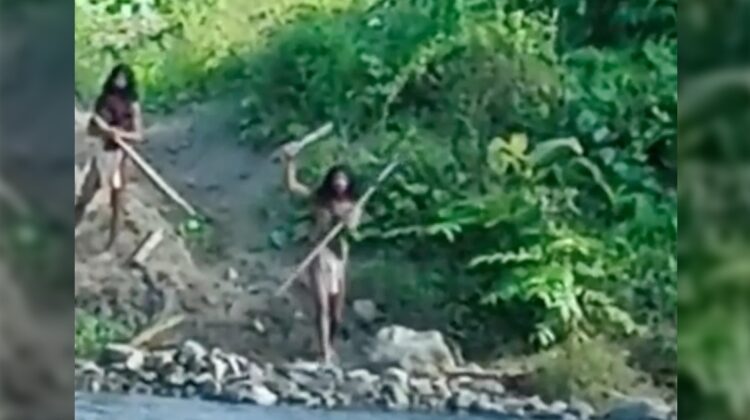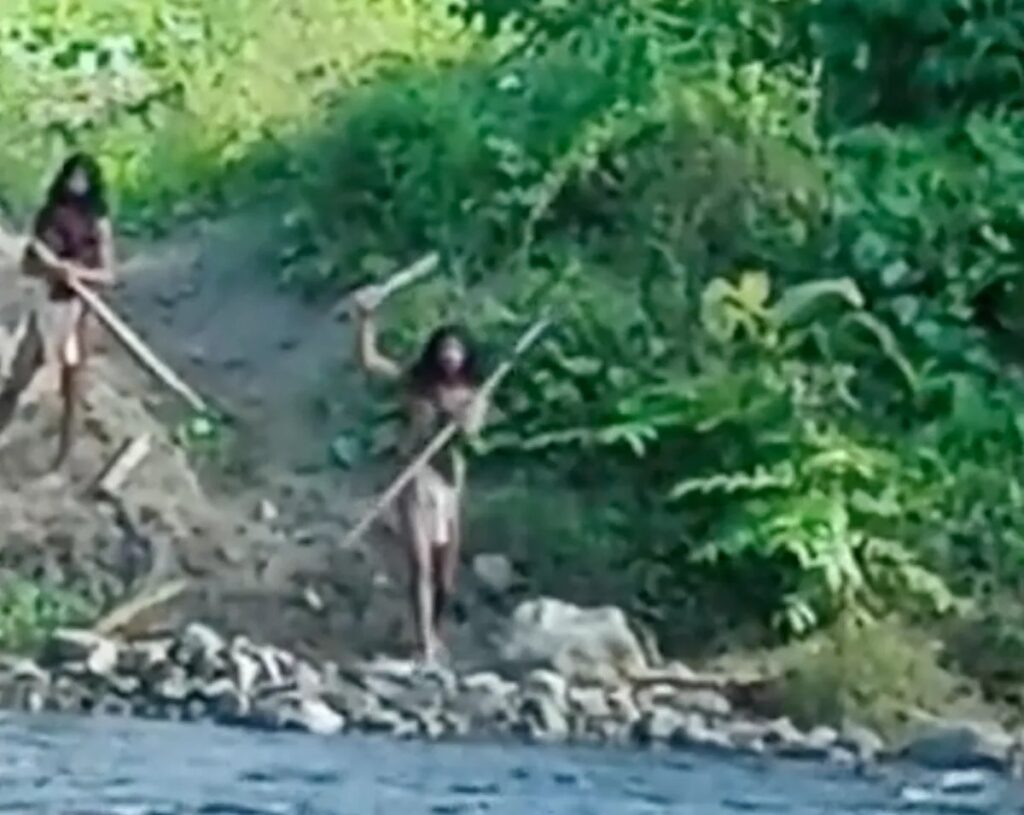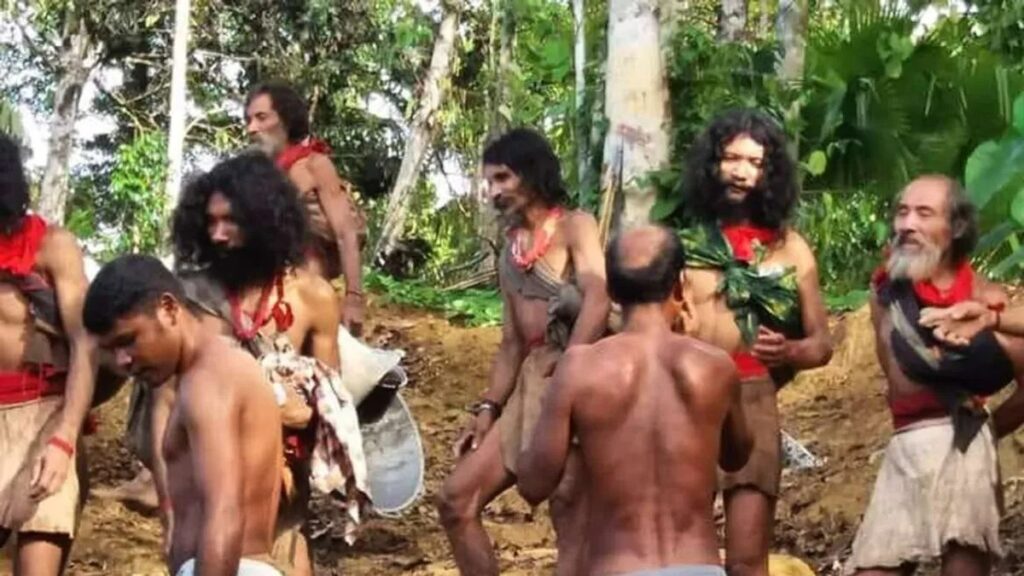
New and alarming footage has emerged, shedding light on the challenges faced by the uncontacted Hongana Manyawa tribe in Indonesia as nickel mining operations encroach upon their ancestral lands. The video captures a disturbing reality that some activists are labeling as “genocidal” mistreatment of the land and its Indigenous inhabitants.
This shocking video was recorded by a worker as part of a team involved in land clearance before nickel mining. In the video, two Hongana Manyawa men can be seen warily approaching a bulldozer, clearly expressing their unwelcome sentiments by brandishing weapons. In response, the bulldozer operators rev up their engines, prompting the men to retreat.

Image courtesy of Survival International
The swiftness of the incursion into the forest took many by surprise. Callum Russell, Asia Research and Advocacy Officer at Survival International, remarked, “It’s particularly shocking because we didn’t know that that part of the forest had been penetrated already by the companies. It’s happening much faster than we anticipated.”
The Hongana Manyawa, whose name translates to “People of the Forest,” are an uncontacted tribe with an estimated 300 to 500 uncontacted members and around 3,000 Hongana Manyawa people who were contacted in the 1980s and maintain some connection with the outside world. They call Halmahera, an Indonesian island, home, and this island holds vast reserves of nickel, which has gained prominence due to its use in electric car batteries. As a result, international mining corporations have turned their attention to this once-quiet island.
Weda Bay Nickel, a company partially owned by the French mining company Eramet, initiated mining operations on the island in 2019 and has ambitious plans for the future. Eramet, seeing themselves as the environmentally conscious mining company, has partnered with BASF, a German chemical company, to undertake significant nickel smelting projects, ostensibly for electric car batteries.
The tragic irony is that the Hongana Manyawa, known as the “People of the Forest,” are witnessing the destruction of their habitat in the name of the green transition.
Survival International claims that Weda Bay Nickel’s mining concessions may indeed overlap with the lands inhabited by uncontacted people. Internal documents leaked to Survival International reveal that the company hired anthropologists who warned about the presence of the uncontacted Hongana Manyawa people in the vicinity.
The relationship between the tribe and their forest is deeply spiritual and profound. When a baby is born, its umbilical cord is planted alongside seeds. The tree that grows from this is considered a part of the person’s soul.
Even these sacred trees have not been spared from logging. Callum Russell recounted a heartbreaking story of a Hongana Manyawa man whose birth tree was cut down by Weda Bay Nickel. To these people, trees possess souls akin to human beings, making the loss deeply painful.

Image courtesy of Survival International
The encroachment on the Hongana Manyawa’s land poses not only an environmental threat but also a health risk. Their isolation from the outside world means they have limited immunity to common diseases. As outsiders increasingly invade their territory, there’s a real danger of exposing the tribe to deadly infections.
Survival International is actively campaigning for electronics companies to pledge not to purchase nickel from Halmahera and pressuring BASF to halt investments in nickel production on the island. Their efforts also extend to lobbying the Indonesian government to implement safeguards for the protection of the island and its Indigenous inhabitants. Russell concluded, “We want their lands to be protected… The Hongana Manyawa are not even yet recognized as Indigenous peoples. They haven’t had their land recognized. They basically have the same rights as animals in the forest at the moment. It’s a really urgent case. But we think we can make a difference.”

Are we western still so stupid…
When will we talk first
and act much lateron